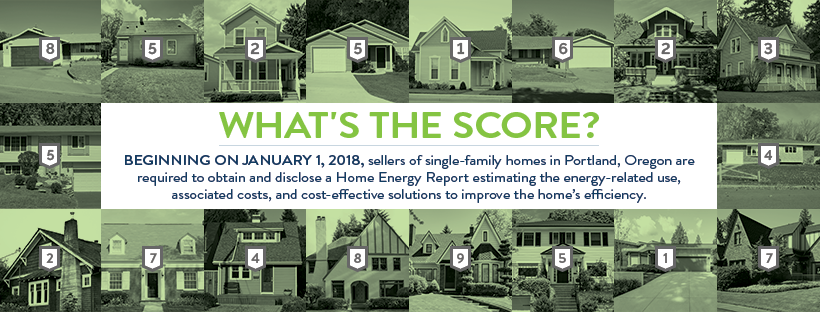Starting at the begining of 2018, sellers of single-family homes in the City of Portland must obtain and disclose a Home Energy Report estimating the energy related use, associated costs, and cost-effective solutions to improve the home’s energy efficiency. The Home Energy Score and the Home Energy Report must be provided for real estate listings and prospective buyers.
Complying with this new policy takes two steps (1) getting the Home Energy Score and (2) showing the Home Energy Score / Home Energy Report for any listing or public posting about the house for sale. Like a miles-per-gallon rating for a car, or energy guide for an appliance, the Home Energy Score will provide residential home buyers with directly comparable and credible information about a particular home’s systems and performance.
For home sellers, you (and your real estate broker) will need to know how to get your home assessed, how to find qualified assessors, understand details about factors impacting the scorecard, and how to use the report to improve scores and the energy efficiency of your home.
For home buyers, the Home Energy Report is a useful tool. It detects things you can’t see and aids in determining the full costs of owning and operating the listed home. A home sale negotiation is an opportune time to discuss energy efficiency improvements as a component of the sales agreement. Costs can either be wrapped into the final sale agreement or included in the mortgage.
The adoption of the Home Energy Score ordinance is part of an effort to reduce carbon emissions by 80 percent by 2050, as outlined in the City of Portland’s 2015 Climate Action Plan. Since residential buildings contribute nearly half of all emissions from buildings, and since voluntary efforts have already made a difference, this policy will accelerate change and provide consumer insight and protection.
For more info: PDXHES.com
Ron McDowell is a realtor and specializes in Solar Homes, Smart Homes, and Home Energy Scores. Ron McDowell






